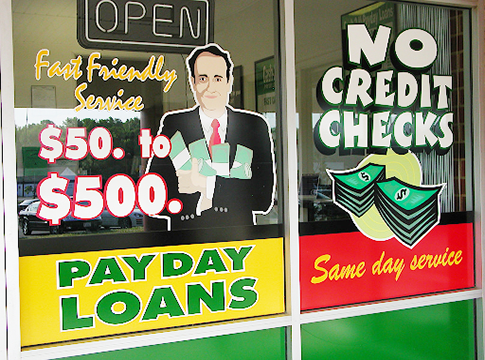About 12 million Americans take out payday loans every year, mostly to cover necessities like rent or utilities. People of color, single parents, and low-income people are most likely to rely on these kinds of loans, which can have interest rates of upwards of 400%
Payday lenders will not have to verify whether people coming in to take out short-term, high-interest loans are likely to be able to pay them back, the Consumer Financial Protection Bureau said this week.
This new rule reverses one written under the Obama administration that would have required lenders to look at someone’s income and other monthly payments, like rent, child support o student debt, before giving them a loan to prove that customers could afford to pay off the short-term loan in full within two weeks. It was intended to protect borrowers from getting trapped in a cycle of debt. The payday lending industry lobbied hard against those regulations, and under the Trump administration they never went into effect. Now, the CFPB has officially rolled them back, provoking heated reactions from consumer advocates and members of Congress.
Payday loans are high-interest rate loans marketed as short-term loans for individuals who need cash to tide them over until their next paycheck. About 12 million Americans take out payday loans every year, mostly to cover necessities like rent or utilities. People of color, single parents, and low-income people are most likely to rely on these kinds of loans, which can have interest rates of upwards of 400%. In theory, a consumer should be able to repay the loan in full when they next get paid, but that’s rarely what happens. The loans come with confusing terms that often add up to sky-high interest rates, usually in the triple digits, referred to as “true annual percentage rates.” For example, these loans typically come with monthly maintenance fees and origination fees that are then added on top of their annual interest rates.
“Any kind of loosening of regulation during this pandemic, specifically around this COVID-19 crisis, is just really, really hard to swallow, knowing that people are struggling financially,” said Charla Rios, a researcher at the Center for Responsible Lending. “It feels like this rule has kind of opened the door for things to become even worse for a lot of consumers.”
Payday loans are argued to be a viable source of credit for low-income consumers who don’t qualify for loans with better rates. But these borrowers often find themselves trapped in a vicious payday loan cycle. Three-fourths of all payday loans are taken out by borrowers who have taken out 11 or more loans in a year, and most repeat loans are taken out within two weeks of repaying a previous one.
Earlier this year, the New York times published a report claiming the CFPB manipulated its own research process to help justify the payday loan rule revision. Senator Sherrod Brown (D-OH), a ranking member of the US Senate Committee on Banking, Housing and Urban Affairs, mentioned the report in a statement shortly after the CFPB’s announcement.
“Today the CFPB gave payday lenders exactly what they paid for by gutting a rule that would have protected American families from predator loans that trap them in cycles of debt,” Brown said. “This new rule – and recent reports that political appointees manipulated research to support the new rule – show just how far the CFPB under Director Katy Kraninger will go to protect President Trump’s corporate cronies instead of consumers.”







